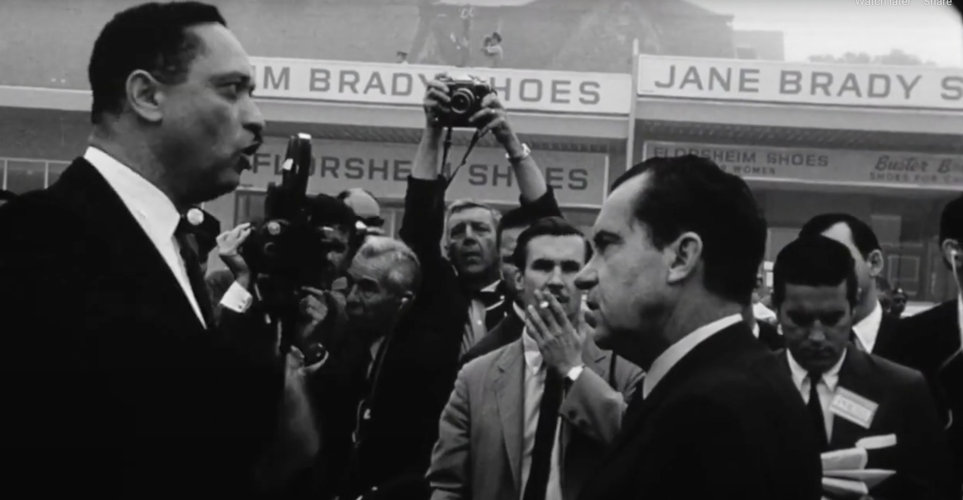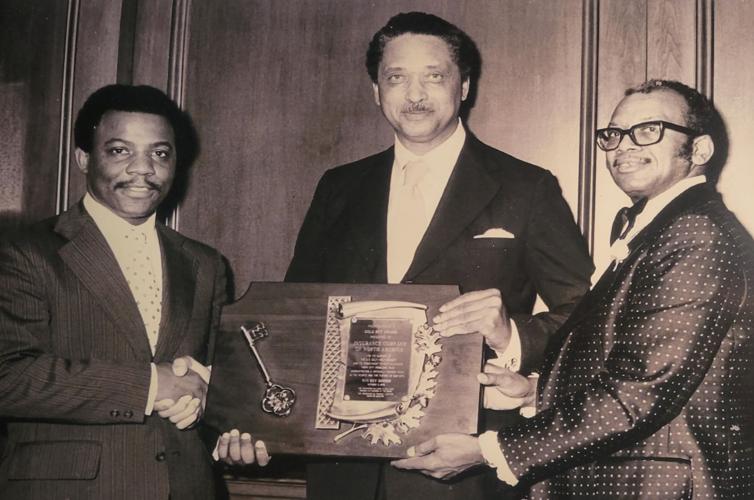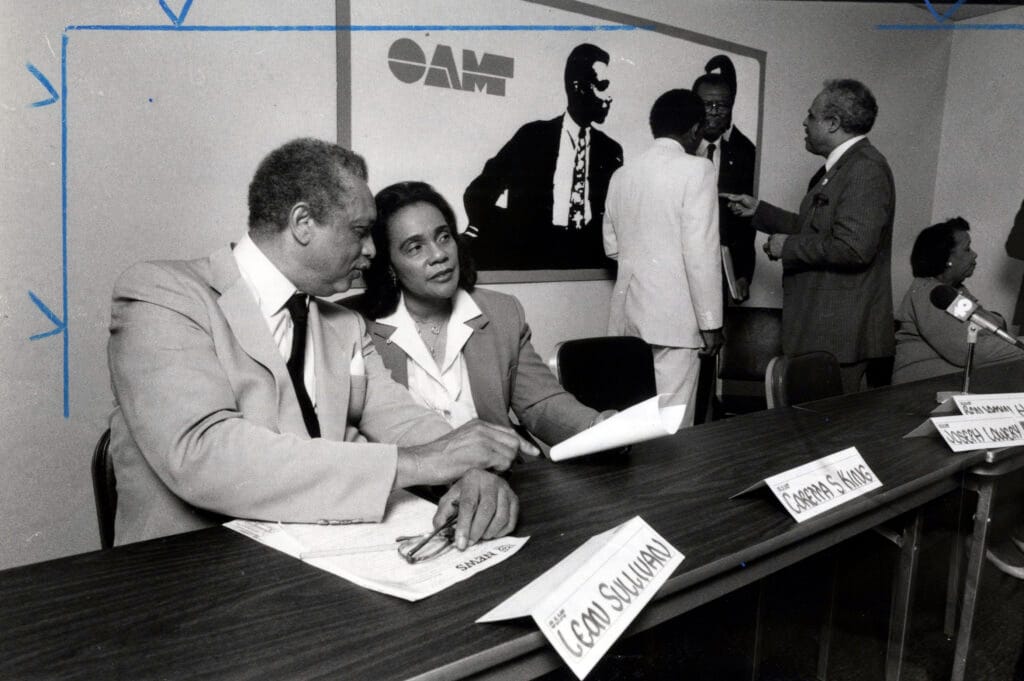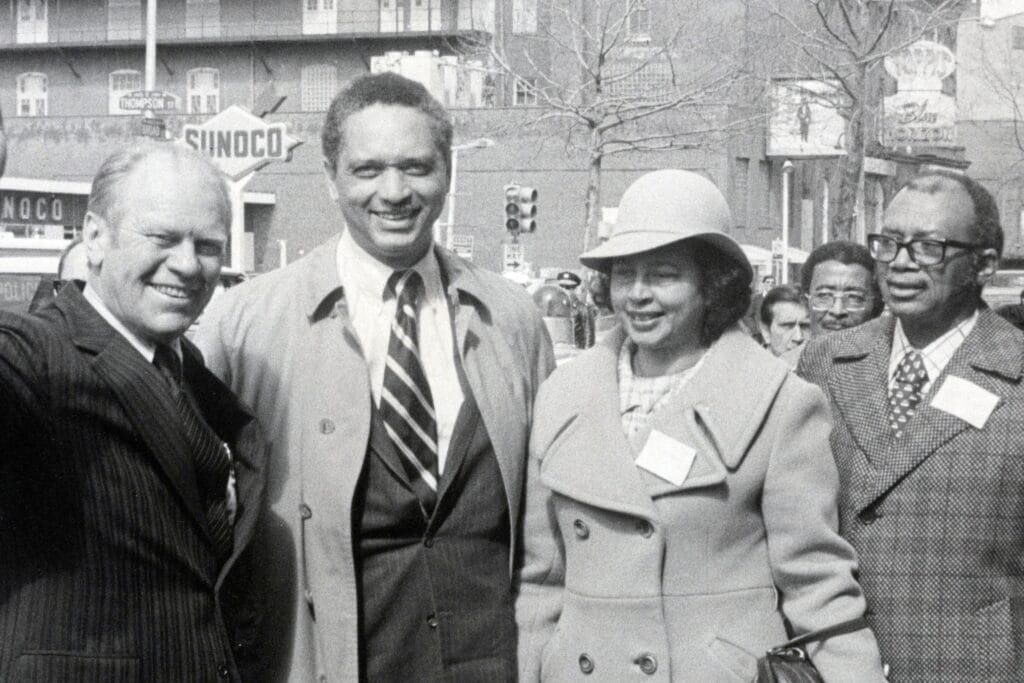By Elisabeth Sullivan Johnson, For The Inquirer
When I was a child, my grandfather, the Rev. Dr. Leon H. Sullivan — a civil rights activist, humanitarian, and champion for social justice — traveled to Washington, D.C., for a meeting with President George W. Bush.
I was so young that I had little understanding of what was happening, but I do remember feeling particularly happy for two reasons: 1) I had a break from school, and 2) I was eager to see if the food at the White House would be better than my mother’s. (It wasn’t.)
Through his many efforts to promote equality, create jobs, and build a relentless spirit of self-help, my granddad — working out of his base at Zion Baptist Church in Nicetown-Tioga, a congregation he led through four decades — helped millions before he died in 2001. But he was not alone. The force behind much of Granddad’s work was his beloved wife, my grandmother, Grace Banks Sullivan. Together they worked to build a new world for African Americans in Philadelphia and the nation.
























As I join with others to celebrate the 102nd anniversary of my grandfather’s birth this week — he was born in Charleston, W.Va., on Oct. 16, 1922 — I want to sketch out some more of their collective story as a couple who worked tirelessly on the front lines of the battle for equity.
Many evenings before dinner, back when we lived in a multigenerational household, my grandparents would occasionally ask us grandchildren to stand up and say, “I am somebody!”
The first two or three times, I felt silly saying it. The next several times, it became a habit. Now in memory, it’s become an indelible part of my character. This is how my grandparents conducted themselves — they knew the remarkable power and potential within every person and dedicated their lives to helping those unseen feel seen.
My grandmother would read to me just about every day, to offer me a sense of home and familiarity within the nice but alien hotels where we stayed during their frequent trips. I remember her reading A Tree Grows in Brooklyn to me before bedtime, interweaving anecdotes from her childhood that mirrored the novel’s storyline of a young girl navigating difficulties with grace, strength, and perseverance.
My grandmother was not only an indispensable adviser to my grandfather, but she, too, was an entrepreneur, single-handedly launching a number of public service programs.
After obtaining her bachelor’s degree in her 40s and her master’s degree in her late 50s, she founded and directed what was, at that point, called the Miniversity. It was an adult education program she started in 1974, with a modest cost ($36) and no entrance requirements whatsoever, that provided college-level courses taught by top professors from local universities such as Temple, LaSalle, Beaver, and Cheyney.
Designed to enable underserved community members to gain an affordable and quality education in a safe and culturally sensitive environment, the Miniversity became a guiding light, offering access to greater opportunities and higher learning. About a third of the program’s students later enrolled, or reenrolled, in college or another traditional educational institution.
What stood out to me was my grandmother’s keen understanding of the relationship between mental health and academic success. She was resolute in working to ensure that class was an enjoyable, comfortable, and nurturing environment. She would often bring snacks and games into class, and in order to provide a sense of unity and familial belonging, she encouraged her entire family to participate. Internationally renowned figure or not, my grandfather allocated time to join the Miniversity classes in order to provide a sense of support and encouragement.
One of the outgrowths of the Miniversity was COPE (Community Oriented Police Education), a 12-week training program she created to develop a more positive relationship between neighborhood residents and police officers for the benefit of Philadelphians. The program, funded by the Ford Foundation, offered multiple courses, including instruction on stress and crisis management, community and police responsibility for crime prevention, conflict reduction, and effective communication.
With the success of her programs, my grandmother helped strengthen and improve the fabric of Philadelphia’s interpersonal and social well-being. She did the same in her personal relationships.
As my grandmother grew older, she needed to use a walker for stability. During my high school years in Arizona, after my mother had left for work in the mornings, my grandmother would use her walker to help me get to and from my school bus stop.
One day on our walk, other students crossed our path, and I remember her telling me, “Oh, I don’t want to embarrass you!”
Even with the most full and prestigious life, in that moment, all she cared about was ensuring her adored teenage granddaughter was comfortable, even if for a minuscule moment, and even if it meant bowing to the naivete of a little girl’s concept of what is or is not socially acceptable.
Just as she had done for so many people for so many years through the programs she founded in Philadelphia.
I told her that I enjoyed walking along with her, and those simple moments became the highlights of my day (and, I now realize 13 years after her death, perhaps also some of the most wonderful highlights of my life). But that thoughtful and seraphic spirit was the reason why my grandfather was fond of calling her “Amazing Grace.”
I share this memory to tell you that my grandmother, like my grandfather, was not only a visionary, engaged activist, and diplomatic adviser, but also a loving wife, mother, and grandmother. If my grandfather was the teacher of alchemy in the community, my grandmother worked to make this community feel like a family, united. (And, in her Chanel shoes and tailored men’s suit, she looked good doing it!)
Both of them were children of the Jim Crow era, with every odd stacked viciously against them, and yet they managed to change the world together. Amazing Grace, indeed.